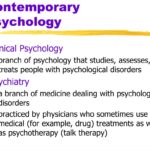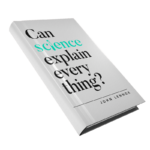Exploring Science Words That Start With 'L': A Comprehensive Guide

Introduction: The Importance of Science Vocabulary
Scientific literacy starts with understanding the language of science. Mastering science words-especially those starting with the letter ‘L’-can deepen your comprehension across biology, chemistry, physics, and earth sciences. This guide explores key science terms that begin with ‘L,’ providing definitions, examples, and actionable steps for integrating them into your studies or professional work.
Section 1: Essential Science Words That Start With ‘L’
Science spans a vast array of disciplines, each with specialized vocabulary. Here, we highlight and explain some of the most important science words beginning with ‘L,’ based on authoritative sources:
- Laboratory : A facility for scientific research, experiments, and measurement. Laboratories are essential in chemistry, biology, physics, and engineering. Proper lab safety and protocol are crucial for effective experimentation [1] .
- Larval : Refers to the immature, early stage in an organism’s life cycle, especially in insects and amphibians. Understanding larval stages is vital for studying metamorphosis and ecosystems [1] .
- Latitude : The geographic coordinate that specifies the north-south position of a point on Earth. Latitude influences climate, weather patterns, and ecological zones [1] .
- Lithosphere : Earth’s outermost layer, including the crust and upper mantle. The lithosphere’s properties shape geological phenomena such as earthquakes and plate tectonics [1] .
- Lens : A piece of transparent material (often glass) that focuses or spreads light rays. Lenses are fundamental in optics, microscopes, telescopes, and corrective eyewear [1] .
- Life Cycle : Describes the series of changes an organism goes through from birth to death. Understanding life cycles informs research in ecology, agriculture, and medicine [1] .
- Light Year : The distance light travels in one year (~9.46 trillion km). This term is central in astronomy for measuring vast cosmic distances [1] .
- Lysosome : A cell organelle containing enzymes that digest waste and cellular debris. Lysosomes are key to cell health and research into diseases like Tay-Sachs and Pompe [3] .
- Leukocyte : A white blood cell, essential for immune system functioning and fighting infections [1] .
- Lichen : A symbiotic organism formed by an alga and a fungus, important for ecosystem monitoring and studying air quality [1] .
- Luminosity : The intrinsic brightness of a celestial object, a key concept in astrophysics [1] .
- Lunar Eclipse : Occurs when Earth passes between the sun and the moon, casting a shadow on the moon. Lunar eclipses are critical for understanding celestial mechanics [1] .
- Lipid : A class of biomolecules including fats, oils, and hormones. Lipids are essential in biology and nutrition [3] .
- Ligand : A molecule that binds to another (usually larger) molecule. Ligands are central in biochemistry and pharmacology [3] .
- Lewis Acid : A chemical species that accepts an electron pair, fundamental in understanding chemical reactions [4] .
- Lymph : A fluid containing white blood cells, crucial to the body’s immune system [3] .
Section 2: Advanced ‘L’ Science Disciplines and Concepts
Beyond basic vocabulary, several scientific fields and concepts start with ‘L.’ Here are a few key examples, each with actionable guidance:

Source: vectorstock.com
- Lepidopterology : The study of butterflies and moths. Lepidopterists often work in conservation, agriculture, and environmental monitoring. If you’re interested, consider volunteering at a local natural history museum or butterfly conservatory [2] .
- Linguistics : The scientific study of language. Linguistics research can inform AI, translation, and cognitive science. Explore university linguistics departments or online courses to get started [2] .
- Limnology : The study of inland aquatic ecosystems, such as lakes and rivers. Limnologists may work in environmental consulting, policy, or academia. To pursue this field, search for environmental science programs with aquatic ecology components [2] .
- Lichenology : The study of lichens and their ecological significance. Many universities and botanical gardens offer citizen science projects or volunteer opportunities related to lichen monitoring [2] .
- Laryngology : A branch of medicine focused on the larynx (voice box). Laryngologists diagnose and treat voice and throat disorders. To find a specialist, you can contact your local hospital or search medical directories provided by professional associations [2] .
Section 3: How to Learn and Use ‘L’ Science Words Effectively
Mastering science vocabulary is a process. Here’s how you can enhance your understanding and retention of ‘L’ science terms:
- Contextual Learning : Incorporate new words into your daily reading, writing, or discussion. For example, use ‘latitude’ when studying geography or ‘lysosome’ in biology class.
- Flashcards and Apps : Use digital flashcard platforms or create your own to quiz yourself on definitions and applications.
- Active Application : Try to use new science words in lab reports, essays, or presentations. This reinforces understanding and retention.
- Seek Real-World Examples : Relate terms to observable phenomena. For instance, observe how a ‘lens’ works with a magnifying glass, or note ‘lichen’ growing on trees in your area.
- Join Science Clubs or Workshops : Many organizations and schools offer extracurricular science activities where you can practice vocabulary in hands-on contexts.
Section 4: Accessing Further Resources and Opportunities
If you want to expand your knowledge or explore careers related to these terms, here are actionable steps:
- For more science words and definitions, consider using reputable online science dictionaries. For biology terms, Biology Online is a trusted resource [3] .
- If you’re interested in chemistry-specific definitions, Sciencenotes.org maintains a free online chemistry dictionary [4] .
- To explore branches of science beginning with ‘L’ (like Limnology or Lichenology), search for university programs or professional organizations related to your field of interest [2] .
- For medical science terms, Merriam-Webster’s Medical Dictionary provides definitions and pronunciation guides [5] .
- If specific opportunities or programs are of interest, such as internships or research projects, look for university science departments, local museums, or science centers. You can also search for citizen science initiatives or online volunteer platforms that match your interests.
Remember, always use official websites and established organizations when seeking educational programs, certifications, or professional contacts. When in doubt about where to start, consider contacting your local library, science museum, or university science department for guidance on programs, workshops, or further reading.
Section 5: Overcoming Challenges and Alternative Approaches
Learning scientific terminology can be challenging, especially for those new to the field. Here are strategies to address common obstacles:

Source: wordscity.com
- Challenge: Difficulty memorizing unfamiliar terms. Solution: Break down words into roots and prefixes. For example, ‘lithosphere’ combines ‘litho’ (rock) and ‘sphere’ (ball), helping you remember it means the rocky outer layer of Earth.
- Challenge: Lack of real-world application. Solution: Seek out hands-on experiments or fieldwork (such as observing lunar eclipses or measuring local latitude with a map and compass).
- Challenge: Overwhelming number of terms. Solution: Focus on mastering high-frequency or core vocabulary first, then gradually expand to more specialized terms as your confidence grows.
Alternative approaches include group study, online forums, and engaging with multimedia content (videos, podcasts, and interactive simulations) to reinforce learning.
Conclusion: Building Your Science Language Foundation
Understanding and applying science words that start with ‘L’ can open doors to academic achievement, career development, and informed citizenship. Whether you are a student, educator, or professional, regularly practicing and exploring new scientific vocabulary will serve you well across disciplines.
References
- [1] WordsCity (2024). 100 Science Words That Start With L: A Comprehensive List.
- [2] Wikipedia (2015). Index of branches of science.
- [3] Biology Online (2020). L – Biology Articles, Tutorials & Dictionary Online.
- [4] Science Notes (2017). Chemistry Definitions Starting With the Letter L.
- [5] Merriam-Webster. Medical Terms List: Browse the Dictionary.






